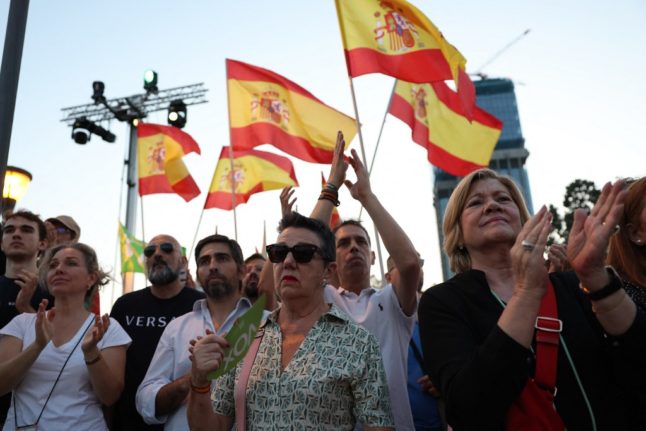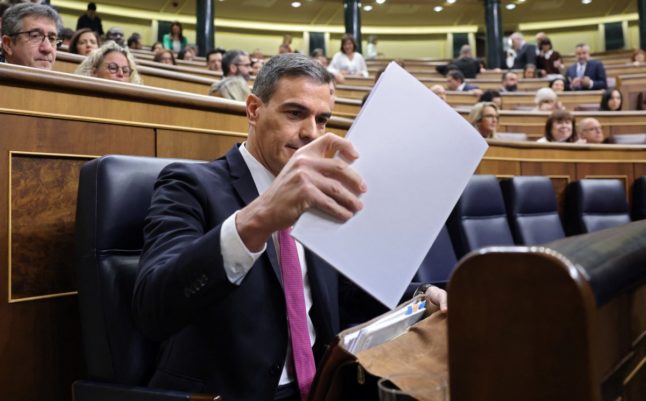Aragón is the fourth of Spain’s 17 regions where the far-right party has taken power through coalition agreements, after Vox entered the regional governments of Extremadura and Valencia in June of this year, preceded by a similar PP-Vox coalition in Castilla y León in 2022.
The Popular Party (PP) had come out on top in Aragón, but failed to reach an absolute majority during municipal and regional polls in May, requiring a partnership to avoid another election being called.
The presidency of Aragón will be held by the PP’s Jorge Azcón, while Vox will oversee the departments of agricultural and territorial development, as well as justice.
🔵🟢 Comenzamos una nueva etapa. Avanzamos para dar a Aragón un Gobierno de cambio, que cuide de los aragoneses y que ponga Aragón por encima de todo. https://t.co/5aNjtUp3mx
— Jorge Azcón (@Jorge_Azcon) August 4, 2023
Azcón was not present at the signing of the coalition on Friday, leading PSOE spokesperson Pilar Alegría to criticise the Popular Party for “wanting to form pacts with Vox, but not show face”.
Instead PP and Vox spokespersons Ana Alós and Alejandro Nolasco faced the cameras as the two parties agreed to jointly rule the region of 1.3 million inhabitants.
The pact comes after PP and Vox politicians in the region agreed to 80 points relating to everything from health and education to environment and employment, with the most controversial changes planned being the cancellation of PSOE-led Trans and Democratic Memory laws, the introduction of a parental vetoes in schools and the promotion of a new public-private healthcare.
“This government is going to be a containment dam in the defence of the equality of all Spaniards and all Aragonese,” the PP’s Alós told journalists.
The results of local elections prompted the early call for polls on the national level, held last month, which saw Socialist Prime Minister Pedro Sánchez’s party gain far more votes than polls predicted but still fall short of a majority.
The PP took the lead with 137 seats, also short of a majority, leaving the socialists a window to form government with enough alliances.
However, PP has managed to partner with Vox to take power in several cities in the country, which has drawn criticism from the left particularly over the far-right party’s renunciation of the concept of gender violence.



 Please whitelist us to continue reading.
Please whitelist us to continue reading.
Member comments